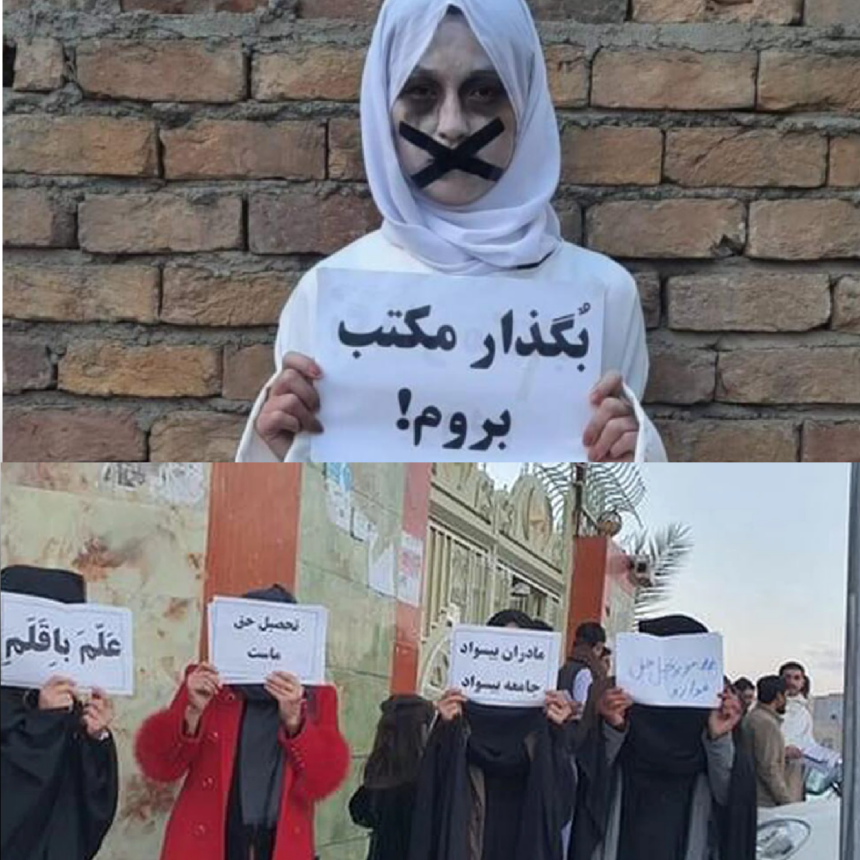RASC News Agency: A newly released report by UN Women paints a harrowing portrait of life for Afghanistani women and girls under Taliban rule, while also exposing a striking truth: the Afghanistani people, across every province and demographic, stand overwhelmingly against the regime’s ban on female education. According to the report, an extraordinary 92 percent of Afghanistani citizens strongly support girls’ right to continue schooling an emphatic repudiation of the Taliban’s draconian edicts that have shuttered schools and universities for women since the group’s return to power. The findings, based on a nationwide survey of more than 2,000 participants, reveal that the Taliban’s policies are not only unpopular but fundamentally at odds with the will of the nation they claim to govern.
In rural areas, where Taliban influence is traditionally stronger, 87 percent of men and 95 percent of women declared support for girls’ education. In urban centers, the level of support rises to 95 percent among both men and women, underscoring that the demand for education is not a privilege of elites but a universal and deeply rooted aspiration of Afghanistani society. Susan Ferguson, UN Women’s Special Representative in Afghanistan, emphasized the urgency of this demand: “This is the first and most consistent plea we hear from Afghanistani girls. They are eager to study, and all they ask is the opportunity to learn.” The report goes further, exposing the devastating effects of the Taliban’s broader campaign of gender apartheid. In areas where women have been barred from working, 97 percent of women reported that the ban has had a direct and damaging impact on their daily lives. More than half of humanitarian organizations admitted that their capacity to deliver life-saving aid has been crippled by the exclusion of female staff. Meanwhile, nearly three-quarters of Afghanistani women described their mental health as ‘bad’ or ‘very bad’, a grim reflection of life under systemic oppression. Yet, remarkably, despite suffocating restrictions, 40 percent of women continue to hold onto hope for a future of equality a testament to their resilience in the face of authoritarian rule.
These findings expose what many inside and outside Afghanistan already recognize: the Taliban’s governance is not rooted in the will of the people but in coercion, violence, and the systematic erasure of women from public life. The 92 percent opposition to their education ban demonstrates the vast chasm between Taliban diktats and the aspirations of Afghanistani citizens. Human rights experts argue that by expelling women from schools, workplaces, and the public sphere, the Taliban has institutionalized a form of gender apartheid unprecedented in modern history. This has left the regime with virtually no legitimacy at home, while further isolating it abroad. Indeed, the International Criminal Court has already issued arrest warrants for senior Taliban leaders, including their so-called “chief justice,” on charges of widespread human rights violations an explicit acknowledgment by the international community that the Taliban is not a government but a pariah movement enforcing medieval repression.
For ordinary Afghanistani citizens, however, the reality is immediate and crushing: every day that classrooms remain locked, futures are stolen; every decree silencing women deepens the nation’s humanitarian crisis. What remains undeniable is that the people of Afghanistan stand united against Taliban tyranny, demanding the simple yet revolutionary right for their daughters to learn, to work, and to live with dignity.






